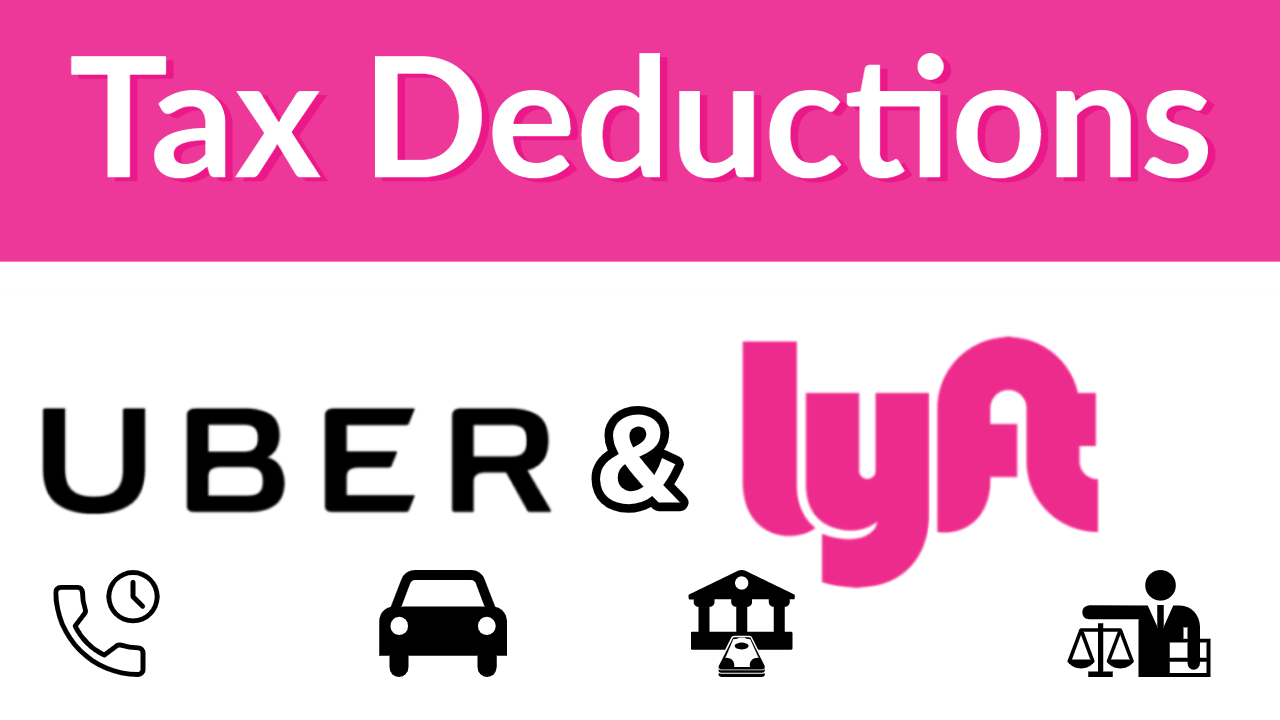
by Donya Curry | Jan 5, 2020 | Bookkeeping
Here is a list of the Tax deadlines and dates you should be aware of for 2020.
January 15, 2020 4th Quarter 2019 Estimated Tax Payment Due
Self-employed fourth quarter estimated taxes are dues need to be paid by the January 15, 2020 tax deadline.
January 31, 2020 deadline for 2019 W-2s and 1099-MISC forms.
All 1099-MISC for contractors, and Form W-2’s to employees should be filed and given to them by this deadline. Penalties apply to businesses who fail to complete the deadline.
March 16, 2020 deadline for corporations, S-Corps, and LLCs returns (1120, 1120-S, 1065)
April 15, 2020 Deadline for personal tax returns. (1040)
Deadline for Trusts and Estate (1041). Foreign Bank Account Report Due (FinCen 114)
Last day to apply for an extension. (7004)
1st quarter estimated taxes due.
Last day to make your 2019 IRA Contribution
June 15, 2020 2nd Quarter 2020 Estimated Tax Payment Due
Self-employed second quarter estimated taxes are dues need to be paid by the January 15, 2020 tax deadline.
September 15, 2020 3rd Quarter 2020 Estimated Tax Payment Due
Self-employed third quarter estimated taxes are dues need to be paid by the January 15, 2020 tax deadline.
October 15, 2020 Extended Individual Tax Returns Due
If you got a filing extension on your 2019 tax return, you need to get it completed and postmarked by October 15, 2020.
January 15, 2021 4th Quarter 2020 Estimated Tax Payment Due
Self-employed fourth quarter estimated taxes are dues need to be paid by the January 15, 2020 tax deadline.

by Donya Curry | Oct 24, 2019 | Business, Individuals
Every year after the extension due date new clients contact me ready to file their tax return. This is the time we find out extensions were not actually file, and now they have multiple penalties and interest to pay. I get them updated and write a letter to abate penalties.
The IRS isn’t in the business of letting people keep money. Penalty abatement is kind of easy the first time around for most clients. Some people don’t even feel it worth asking for penalty abatement/relief because everything involving the IRS is too complicated and time consuming. This is the part where I push up my glasses and tighten the tie getting ready to handle the hard part on their behalf.
I think taxpayers need to understand why the IRS actually uses penalties. Penalties are supposed to be a deterrent for people who fail to follow the rules and are out of compliance with the US tax code. They are a great way to bring in revenue for a under funded government branch so expect to see them applied whenever possible. The IRS apply millions of penalties to tax payers every year bringing in billions of easy money. Life happens and there are additional options to get penalties removed, or abated, for individuals ans businesses that qualify.
The most common used IRS penalties is the failure to file and failure to pay.
The IRS has over 130 different penalties the can assess. in the Internal Revenue Code, but two penalties make up 75% of all penalties assessed by the Internal Revenue Service.
Failure to pay penalty equals 60% of all penalties.
Failure to file penalty equals approximately 15% of all penalties.
The tax penalties can be disputed by providing an exception when filing your tax return.
Penalties will be removed by the Internal Revenue Service for a few reasons. We normally end up requesting penalty abatement for a statutory exception or reasonable cause.
Statutory exception- Are specific authoritative exclusions to the penalties. Statutory exceptions are rare, but rather easy to make a case for. A statutory exception would be a presidential declared disaster relief.
IRS Fault: If you can prove an error was the result of reliance on IRS advice. We always caution against following an agents advice. We default to the US Tax code and use that. To use the IRS error for a penalty relief is difficult and rarely successful. You need to have documented erroneous advice from the IRS that you reasonably relied on. The IRS doesn’t put tax advice in writing in majority of cases. You can also file penalty abatement based on erroneous verbal advice. Being able to successfully use either argument is not common.
Reasonable cause: providing a valid reason that you couldn’t comply based on your facts and circumstances. This argument normally includes chronic health problems and reliance on a bad tax professional or tax software. Those types of problems can be used under reasonable cause.
To successfully apply for an abatement using a reasonable cause argument for late filing and payment has its own requirements. You must demonstrate that you genuinely tried to comply. Your actions should demonstrate a sense of care. You need to show that your noncompliance was not due to your willful neglect.
IRS agents are also citizens and taxpayers just like you. To successfully prove a reasonable cause, you’ll need to make sure that the IRS knows all of the facts around the circumstances. It can seem unnecessary, but not all situations are the same. Leaving out facts that can clarify your position could result in you receiving a denial letter. If the denial letter fails to address facts crucial to your argument presented earlier. The option to request an appeal of the determination should be explored.
The IRS can provide administrative relief from a penalty under certain conditions. The most widely used relief is the first-time penalty abatement (FTA). FTA can be used to abate your failure to file, failure to pay, and other penalties for a single tax period. You do need to have a good history of filing your returns. You can use first time penalty abatement for your business tax penalties as well. FTA is the easiest of all penalty relief options to get approved. You just have to ask for it. If you need help with the IRS you should contact iIATC Inc for tax resolution services.

by Donya Curry | Jul 12, 2019 | Individuals
It wasn’t but a few years back when crypto currency started making mainstream news. IRS had not provided guidance on how to tax the currency. Crypto users were positive they wouldn’t have to pay taxes, because the government wouldn’t have the information needed to track them. Fast forward to 2019 and now the IRS is sending over 10,000 letters to crypto currency holders informing them of their tax duties. The IRS obtained the names of the taxpayers through summons given to the crypto exchanges.
The IRS Large Business and International division (LB&I) had previously announced the approval of five additional compliance campaigns. LB&I’s goal is to improve return selection, identify issues representing a risk of non-compliance, and make the greatest use of limited resources. In plain english their job is to find tax returns with a high chance of errors and collect money and interest from that taxpayer. As a U.S. person you are subject to tax on worldwide income from whatever source derived, including transactions involving virtual currency.
The IRS has a focus on this area with real intentions on curbing noncompliance by taxpayers. The IRS letters are also conveying different messages to taxpayers. The letters were aiming to educate some taxpayers, while others are receiving letters about audits or criminal investigations being pursued. Professionals at IATC Inc always advocate staying in compliance with the tax code to avoid penalties and fines. Crypto traders should contact us for help with any letters they receive.
by Donya Curry | Feb 18, 2019 | Business, Individuals, Non Profits
Every year millions of tax returns are audited by the IRS. The average taxpayer main concern behind paying taxes is somehow causing the IRS to audit their tax returns. It’s true that certain things can automatically trigger an audit. An audit doesn’t actually mean your return is wrong. There are items on a return that present higher opportunities for committing fraud or mistakes.
The burden of proof for taking credits and deductions falls on your shoulders. You might have to prove that you are taking a position on your return in line with current tax code.
The audits are done primarily by mail today. There is a small chance of having an auditor show up in person. No matter how your audit is done you need to respond as soon as possible to ensure they don’t give you a default position. Letter normally state you have a certain amount of days from receiving the letter to respond if you disagree. If you don’t respond they automatically assume you agree with their findings in the letter. If you respond there are one of three things that happens.
The IRS auditors decides the information provided is correct and your return stays the same.
The IRS auditor proposes a change to your tax return, and you can agree to it and/or pay the appropriate taxes, interest or a penalty.
The IRS proposes a change you don’t agree. You have a chance to appeal and enter into an agreement with the IRS.
In the cases of serious tax fraud even though it’s an extremely rare outcome. The IRS can pursue forfeiture of property, jail time, and restitution.
Audit Flags
1. Reporting the wrong taxable income
The IRS actually receives your W-2,1099, and K-1’s before the taxpayers. This goes for both full-time employees and self-employed contractors.
You should check to see if your W-2 or 1099 you receive from any company matches your own records. If you think it is incorrect, immediately inform the company, and request that they file a corrected W-2 or 1099 with the IRS. If a company fails to update their information you would have to file a complaint with the IRS to go through this process of updating those records.
2. Charity donations
If you’re giving away large amounts of money to a charity when your income is low. Be prepared for some scrutiny from your tax pro and the IRS. If you are audited and can’t substantiate your donations. You and the tax pro will have fines and penalties to pay. Any large donation should be appraised, and you should file the Form 8283 for any donation over $500. Make sure you keep all of your charity receipts and follow the IRS’s tips for charitable donations.
3. Business Vehicles
Cars/ SUVs are still the main transportation for alot of business owners. Having a vehicles under your business doesn’t exclude you keeping track of personal miles. Running personal errands to pick up friends and go shopping should not be included. You should always keep a record of your mileage using qualified record keeping guidelines.
4. Home office
This deduction is on a lot of peoples deduction list. Who wouldn’t want to be able to take electricity, internet, and other expenses you use at home and get a benefit. There is a specific definition of what qualifies as a home office, so claiming it could easily trigger an audit. Ensure the room is where you do the majority of your work, and that is not used for any other purpose, especially personal use. This type of deduction can trigger an in-person audit where the IRS want to actually see the room you are claiming for a business deduction.
5. Tax Errors
Simple tax mistakes like small mathematical mistakes are the top reason for alot of audits. The IRS will normally fix these and send you a correction. This can also result in you actually receiving a larger refund as well.
6. Round numbers
On indication of making up income and expenses is have a series of even or round numbers. This is a common practice for people who don’t keep records and try to prepare a return from memory. Audits don’t always happen immediately. They normally come a few years later. You should have documentation to support your deductions and credits. When preparing you return use the actual numbers that match your receipts and other records.
7. Business Losses
The main requirement for being considered to have a business by the IRS is actually doing something to earn a profit. If your business just constantly loses money year after year it will cause some red flags. If you report a loss three out of the last five years. The IRS might consider your business a hobby or fraudulent depending on your specific circumstances. If you have a business ensure your run it like one with receipts and backup.

by Donya Curry | Jan 7, 2019 | Business
Uber and Lyft drivers are considered independent contractors. The beginning of the year you will receive a 1099 that details the images driven, fees taken, and income paid to you from each service. For those who made 20k and had over 200 rides or deliveries you will receive a 1099-k. As a Contractors you will file a schedule C with your 1040 individual returns.
Most rideshare drivers can deduct mileage, parking, tolls, food for passengers, and any other allowable expenses on Schedule C of their federal tax form.
The only requirement for claiming expenses is that they need to be “ordinary and necessary.”
Uber drivers are able to take deductions for:
- Car Payments. Yes, car payments are deductible. You don’t have to actually own your car. If you are making lease payments the amount you pay is deductible up to the portion of the business use of your vehicle.
- Licenses, Registration, Tags and Title, insurance, and uber fees are all deductible.
- Mileage Uber does tell you the mileage you drove for them, but you are required to keep track of your personal use of your vehicle before you can actually take the deduction.
- Tax and legal fees. You can deduct the cost of filing tax returns related to your business and tax planning. If you are a do it yourself type of person. you can take the cost of your tax prep software.
- Home Office Deduction
- The new 20% Deduction on Pass-Through Income. On top of the allowed business deductions, the current tax law allows you to take a 20% deduction on pass-through income. To qualify for this deduction, you need to have business income. As long as your income is $157,000 (filing single) and $315,000 (filing jointly). If you have a business loss you will not see this 20% deduction on pass through income. The deduction on pass-through income is set to expire on December 31, 2025.
This list is not an all inclusive list of the allowable deductions for rideshare drivers. These are some of the most common.





Recent Comments